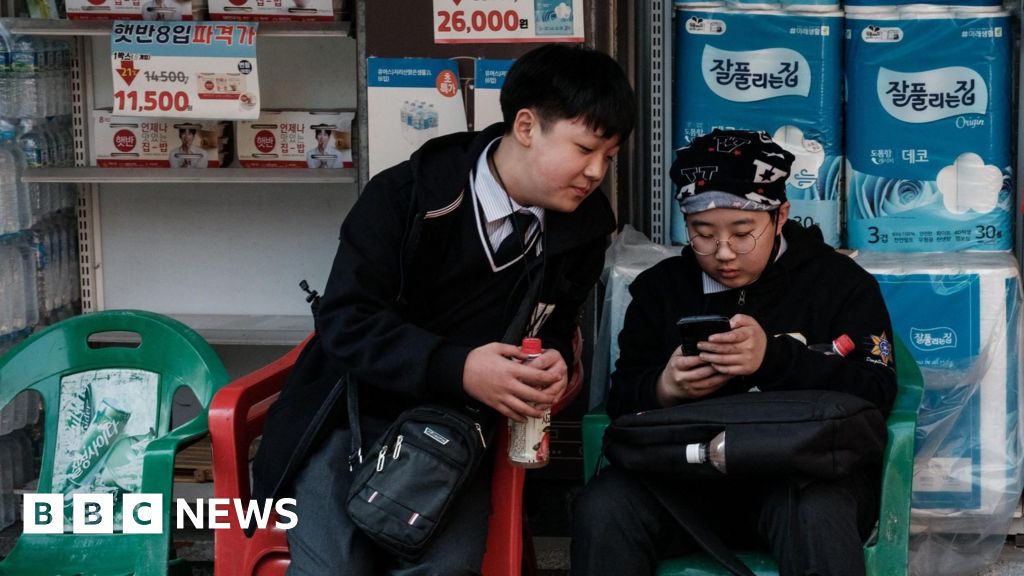South Korea Enacts Nationwide Ban on Phones in Classrooms
South Korea has passed a bill banning the use of mobile phones and smart devices during class hours in schools - becoming the latest country to restrict phone use among children and teens.
The law, which comes into effect from the next school year in March 2026, is the result of a bipartisan effort to curb smartphone addiction, as more research points to its harmful effects.
Lawmakers, parents, and teachers argue that smartphone use is affecting students' academic performance and takes away time they could have spent studying.
The ban has its sceptics, including students, who question how it would work, its wider implications, and whether it addresses the root cause of addiction.
Details of the New Law
The bill passed convincingly on Wednesday afternoon, with 115 votes in favor out of 163 members present. Most South Korean schools have already implemented some form of a smartphone ban, and they are not the first to do so.
Countries like Finland and France have banned phones on a smaller scale, while others, including Italy, the Netherlands, and China, have restricted phone use in all schools. South Korea is among the few to enshrine such a ban in law.
Cho Jung-hun, an MP from the opposition People Power Party who introduced the bill, said he was motivated by similar actions taken by other nations, citing significant scientific and medical proof of smartphone addiction's detrimental effects on students' development.
While the ban only prohibits phone use during class hours, it empowers teachers to enforce restrictions within school premises and encourages educational initiatives on proper smart device usage.
Exemptions exist for students with disabilities or special educational needs, as well as for educational purposes and emergencies. However, teachers remain divided over the ban; only the conservative Korean Federation of Teachers' Association supported it, emphasizing a need for a legal basis to control phone usage.
Critics, including some teachers, argue that the law encroaches on students' rights, while warning that removing phones does not tackle the psychological pressures students face from a competitive educational environment.
Impact on Students and Parents
With smartphone dependency reported to reach 43% among youth aged 10 to 19, parents express concern that this behavior interferes with academic focus and healthy social interactions.
Many believe that rather than merely confiscating phones, efforts should be aimed at educating students about appropriate usage habits.
In conclusion, as South Korea enacts this law, it will be crucial to monitor its effectiveness and explore comprehensive approaches that support students' technological integration in a balanced and healthy manner.


















